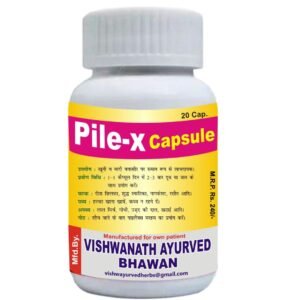We deliver to you every day from 7:00 to 23:00
The best discounts this week
Every week you can find the best discounts here.
M.M.N. Churn
Thyronil Capsule
STONE-X Capsule
Soranil Capsule
Kesh Care Capsule
Pile-X Capsule
Free Shipping on All Orders Over $100
What is Ashwagandha ?
Ashwagandha is an extremely potent herb that is used in traditional Ayurvedic treatment, which is among the oldest healing methods around the globe, and comes from India. It is often called “Indian ginseng” or “winter cherry,” Ashwagandha is known due to its properties of adaptogenic. That means it aids the body in managing stress and keep it in equilibrium.
It is thought to provide numerous health benefits, like decreasing anxiety and stress as well as boosting levels of energy, increasing concentration, and aiding in overall wellbeing. It is often used to fight fatigue, boost a healthy immunity, as well as help promote the feeling of peace.
Ashwagandha is available in many forms, including capsules, powders, and teas. Despite its lengthy history of usage and exciting research being conducted, it’s essential to speak with a medical professional prior to starting a new regimen of supplements to make sure that it’s suitable for your personal health requirements.
Benefits of Ashwagandha
Ashwagandha is a plant that has adaptogenic properties is becoming popular due to its potential health benefits although research is still in the process of developing. Here’s a list of the most researched applications:
-
Sleep Aid: Ashwagandha may help improve sleep quality. Research suggests the consumption of 300 mg twice in a daily or 120 milligrams an extract could be beneficial. A meta-analysis revealed that doses of at most 600 milligrams per day for eight weeks provide the greatest benefits, particularly for those who suffer from insomnia.
-
Stress and anxiety relief: Ashwagandha appears to reduce anxiety and stress. A daily dose of 300 milligrams over eight weeks are found to be linked to less fatigue, anxiety and cravings for food that are stress-related. It can also reduce cortisol levels, which is a stress hormone.
-
Cancer Research: Initial studies suggest that ashwagandha may help fight cancer cells of all kinds of cancer, including colon, breast prostate, and colon cancer and many more. But, the majority of research is still in its preliminary stages, with experiments in the lab or on animals and further human studies are needed.
-
Neurodegenerative diseases: Ashwagandha may offer neuroprotective benefits that could help in slowing or reverse damage that is associated with conditions such as Alzheimer’s as well as Parkinson’s. Most evidence is derived from animal studies, however additional research with human subjects is required.
-
Arthritis A few studies have shown that ashwagandha may help relieve arthritis symptoms, including joint swelling and pain and could have anti-inflammatory properties useful for ailments such as osteoarthritis as well as general knee pain.
-
Fitness performance: Ashwagandha may improve the physical performance and recovery. Studies suggest it may increase the speed, strength in addition to muscle mass increases in exercise resistance. It is also believed to reduce fatigue from exercise and increase the amount of oxygen consumed.
-
Sperm Health: Initial studies suggest that ashwagandha may boost sperm count as well as volume and mobility. But, more studies are needed to confirm these benefits.
How to use Ashwagandha?
Ashwagandha comes in many forms, such as capsules, tea creams for topical use and powders. The powder is blended with sweet liquids to neutralize its bitter taste.
There isn’t a definitive recommendation on the most appropriate timing to consume Ashwagandha, if it is best taken with a full stomach or the length of time it takes for results to show. But, research shows effects after four to twelve weeks of regular usage.
Side Effects Ashwagandha
– Indigestion
– Nausea
– Vomiting
– Diarrhea
– Constipation
– Itchy itchy
– Reduction in appetite
The side effects of these are usually brief and short-lasting. In rare cases the ashwagandha plant may alter liver function, which could cause symptoms like itchy skin, or jaundice. If you experience abnormal or extreme symptoms, you should consult a physician immediately. Always consult a healthcare professional prior to starting any new supplementation, particularly when you suffer from underlying medical conditions or are taking any other medication.
Recent Posts
- Green Life Capsule Complete Ayurvedic detox, Immunity booster and Metabolic Revitalization Modern-day wellness
- Herbostrep Capsule: A Powerful Herbal Immunity Booster for Cough, Cold, and Respiratory Wellness
- Joint Care Capsule – The Ayurvedic Solution for Stronger, Pain-Free Joints Naturally
- Kayakalp Capsule Plus: The Ayurvedic Secret to Glowing Skin and Inner Purity
- Kayakalp Plus Powder by Vishwanath Ayurved: The Ayurvedic Secret to Glowing Skin and Full-Body Detox












